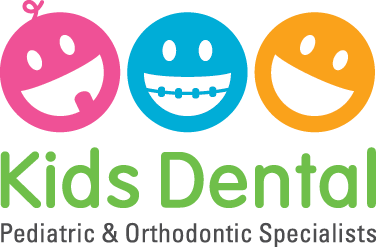Many people assume that primary or baby teeth don’t matter since they fall out when your child is around five or six years old. But that’s a myth. In fact, baby teeth are just as important as permanent teeth and play a crucial role in your child’s oral health.
Not only do they hold space for the permanent teeth that will eventually replace them, primary teeth help your child chew solid food and affect your child’s speech development. Losing a primary tooth too early can cause permanent damage to adult teeth.
Oral care should therefore start early—even before the first tooth appears at around six months of age. Here are some simple steps you can take to keep your child’s developing teeth healthy
Discolouration
Since tetracycline is known to cause tooth discoloration, nursing mothers are advised to avoid taking this common antibiotic during the last half their pregnancy.
Bottle Decay
Tooth decay occurs when liquids containing sugars sit on your baby’s teeth for prolonged periods. Cavities can develop in the front teeth. In severe cases, baby teeth will need to be extracted until permanent teeth grow in. Signs of bottle decay include pitted, pocked or discoloured front teeth.
Obviously fruit juices contain sugars, but so do breast milk and infant formula. Tempting as it may be, it is important not to let your baby fall asleep at night or naptime with a bottle. If you are breastfeeding, avoid letting the infant nurse continuously. If your baby is used to falling asleep sucking, try filling a bottle with water or giving your baby a pacifier recommended by Kids Dental. After each feed, use a clean, damp washcloth to gently rub residual sugars and bacteria from your baby’s teeth and gums.
Once your baby over six months old, they can switch from a bottle to a sippy cup (see our recommendations) to reduce the risk of bottle decay.
Fluoride
Even before teeth appear, your child needs to consume fluoride to strengthen the developing enamel. In most countries, municipal water supplies contain enough fluoride to help teeth develop. If you are unsure about fluoride levels, contact your local water district to find out if your tap water contains fluoride. If you regularly use bottled water for drinking and cooking, or have inadequate levels of fluoride in your water, you may want to consult your pediatrician or dentist. Your baby may need a prescription for fluoride supplements.
How to Care for Your Baby’s Teeth
Once primary teeth come in, you can begin brushing with a small, soft bristle brush especially for babies. Use a tiny amount of training toothpaste (without fluoride) that is safe to swallow. The earlier your child gets used to the sensation of a toothbrush in their mouth, the better.
Within six months of getting their first tooth, arrange for your child’s first visit to a pediatric dentist. Initial visits will help acclimatize your child to the dentist. Afterward, your child should see the dentist every 4-6 months. At Kids Dental Group, we take a proactive approach to deal with any developmental concerns or treatments.
If you have any questions or concerns about your child’s teeth, get in touch with Kids Dental Group at one of our convenient locations in Markham, Stouffville and Richmond Hill.
